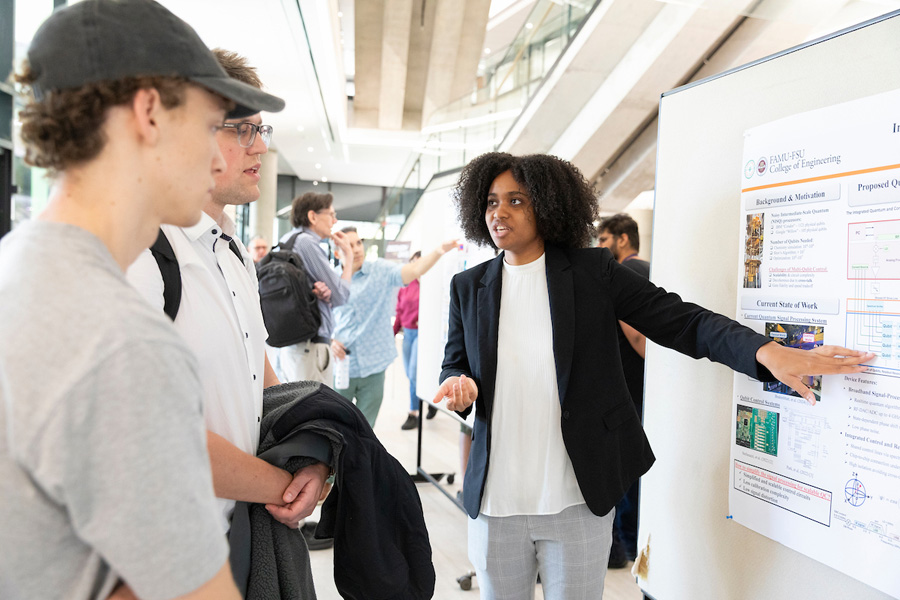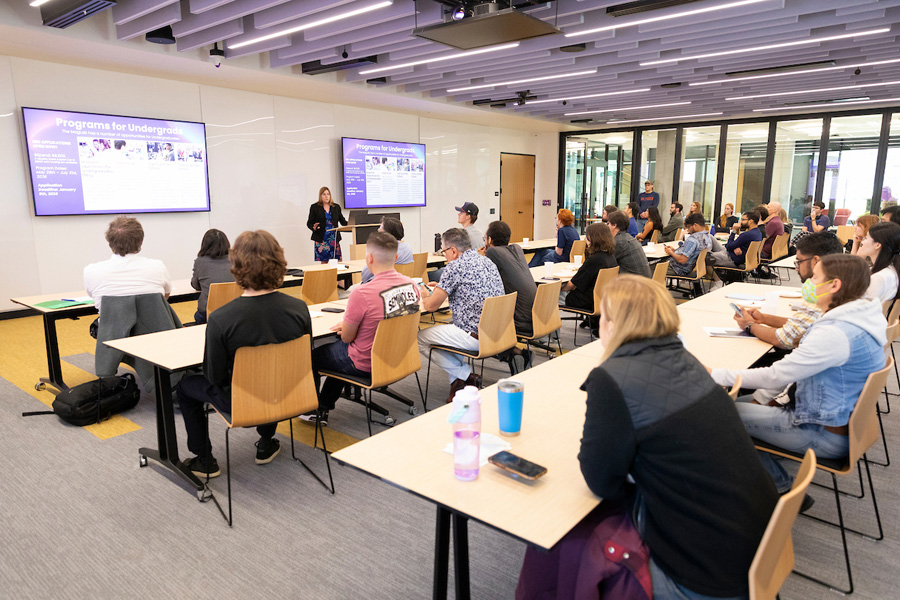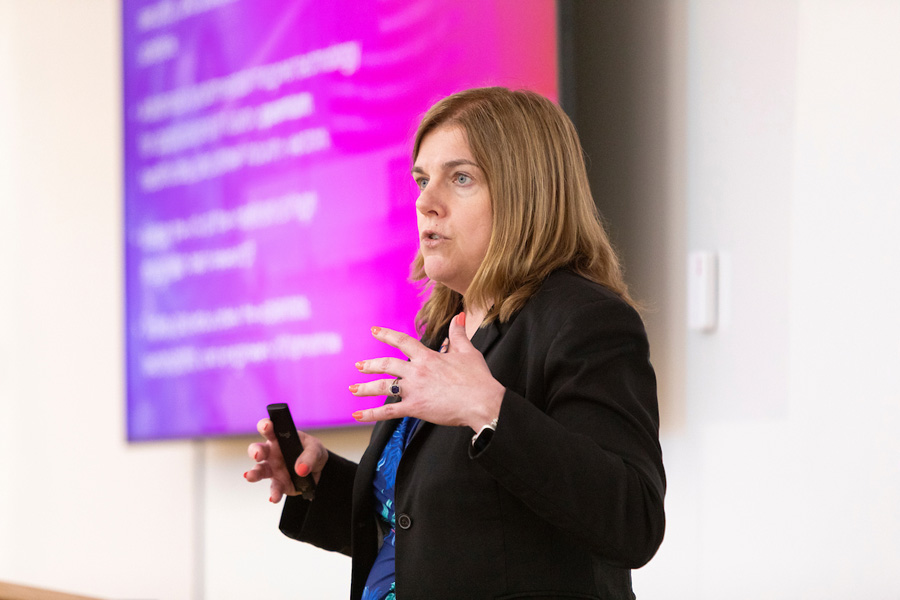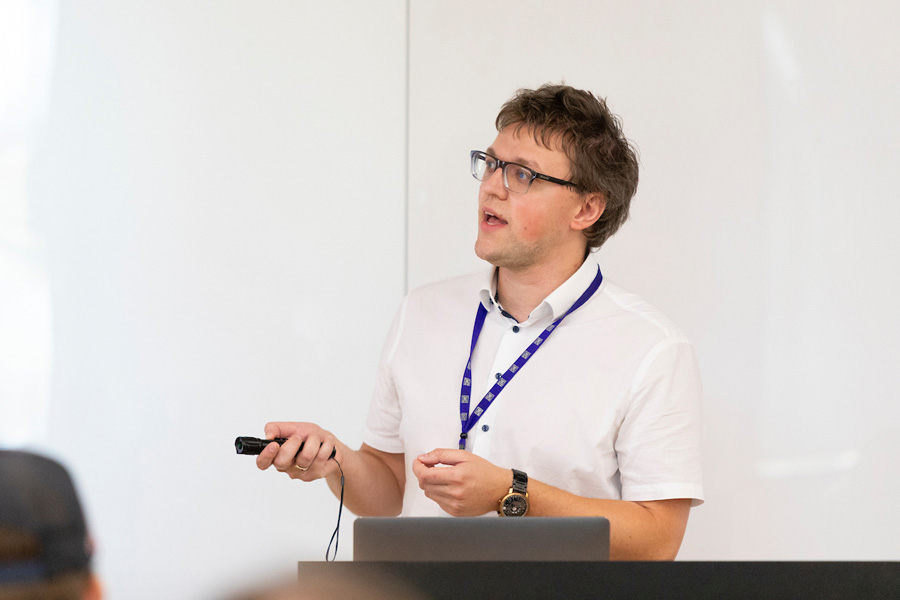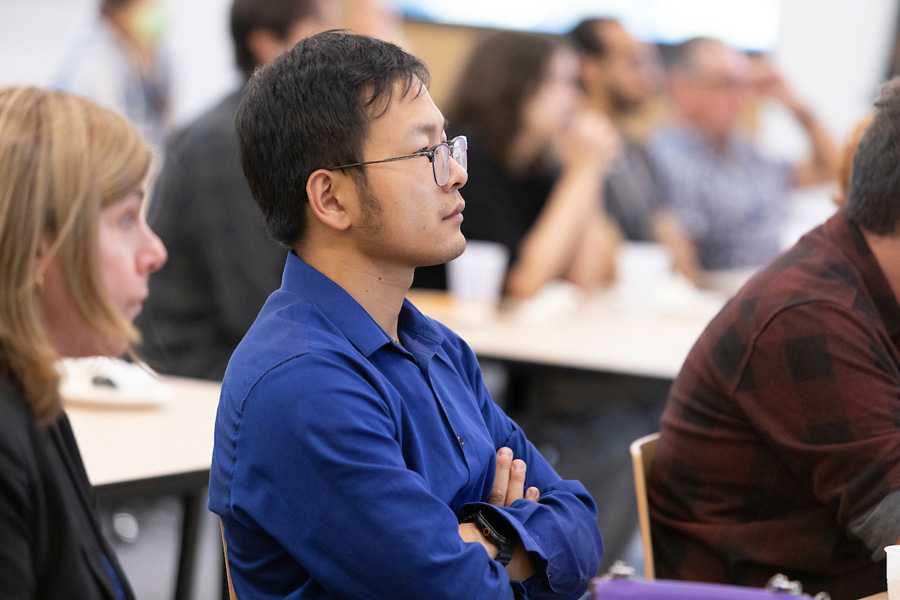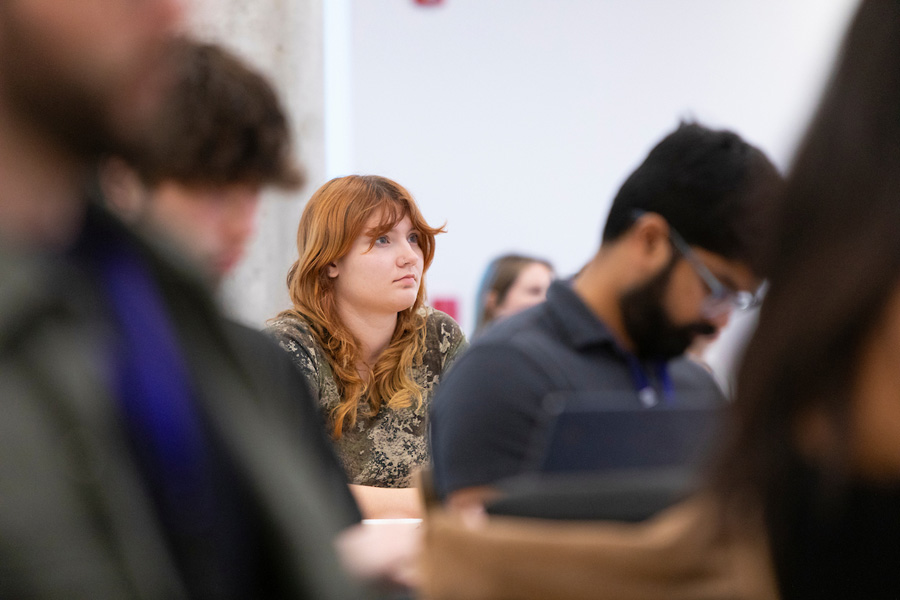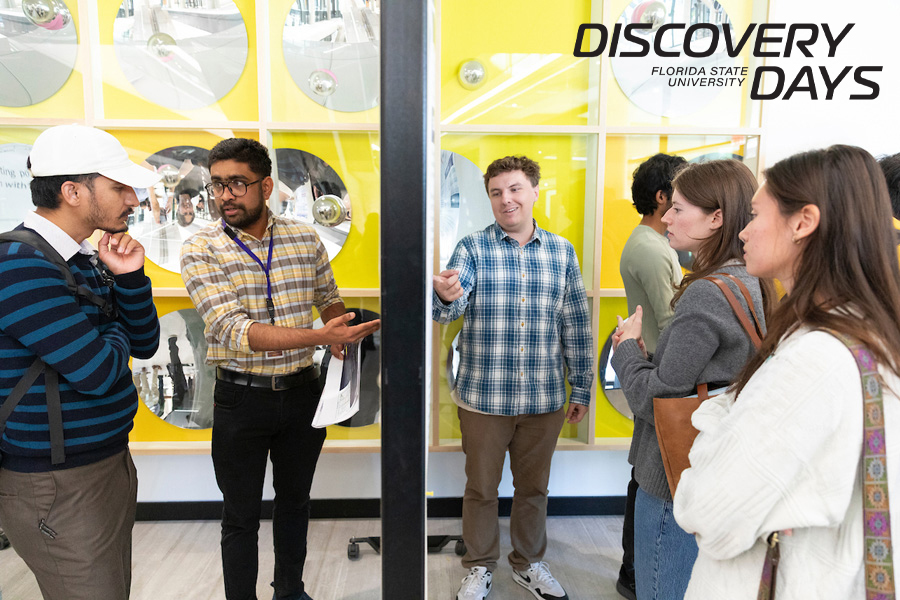
When he decided to major in physics, Florida State University student Nolan Scales was excited to delve into science and to explore research. But he didn’t know that research would be quantum physics.
Today, Scales is a senior in the Department of Physics and a research assistant in the FSU-headquartered National High Magnetic Field Laboratory (National MagLab), where he helps study superconductors and quantum tunneling, a phenomenon in which a particle passes through a barrier that it shouldn’t have enough energy to move through.
“I’ve always liked the idea of quantum, but I didn’t know all that much about it until last year,” he said. “The more I found out about it, the more I saw the applications where it could be useful for the future.”
Scales was among the students who attended a showcase of quantum science and engineering last week at the Interdisciplinary Research and Commercialization Building. The event, led by Assistant Professor of Physics Cyprian Lewandowski as part of FSU Discovery Days, highlighted the FSU Quantum Initiative with a special focus on explaining the latest research in quantum science and engineering to undergraduates and showing how students can get involved in research.
The United Nations is celebrating 2025 as the Year of Quantum Science and Technology, marking 100 years since the initial development of quantum mechanics and looking forward to the future possibilities in this field. Potential applications of new quantum breakthroughs include precise sensors, unbreakable encryption or quantum computers that can solve certain complex problems exponentially faster than classical computers.
“Quantum is incredibly important for technologies that will make a huge impact on our world,” said Mike Shatruk, director of FSU Quantum. “At FSU Quantum, we are building a comprehensive program to develop the workforce that will develop future breakthroughs.”
FSU Quantum is home to faculty research published in top journals. Along with that work, faculty leading the initiative are developing a graduate certificate in Quantum Information Science and Technology, which will be the first program offering certified quantum education in Florida. They are also creating an undergraduate quantum science lab and providing a short course for high school students to introduce them to quantum computing.
The initiative positions FSU to continue making an impact in this field, both in research and training.
“FSU has emerged as a regional and national leader in research on quantum information science and technology,” Shatruk said. “Our faculty, students and postdoctoral scholars and fellows are pushing the boundaries of knowledge, driving innovative technologies critical to our nation’s security and prosperity.”
DEFINING QUANTUM
Quantum science and engineering, or QSE, is based on the principles of quantum mechanics, which govern the behavior of matter at the atomic and subatomic levels. Classical physics can’t explain how matter behaves at such small scales.
Physicists have shown unusual properties at the quantum level, such as superposition (when a quantum system exists in multiple states at once) and the ability of particles to behave both as particles and as waves. Quantum engineering seeks to harness those properties toward useful applications.
The Discovery Days event began with faculty from around campus sharing their work and illuminating this complex field by answering a simple question: “What is quantum?”
“For students whose understanding of physics is rooted in classical mechanics, adapting to quantum concepts and ideas can take some getting used to, but studying this field opens a new and fascinating realm of modern physics,” Lewandowski said. “Our students are incredibly enthusiastic about getting involved in research — nothing showed this better than the posters and accompanying student presentations.”
Faculty from the College of Arts and Sciences, FAMU-FSU College of Engineering and the National MagLab shared insight into topics such as quantum physics, computing, superposition, and how they conduct experiments to probe the quantum realm.
Vladimir Dobrosavljevic, a professor in the Department of Physics, spoke about quantum materials, which have properties or behaviors driven by the principles of quantum mechanics. That might mean they have electronic, magnetic, or even optical properties that can’t be explained by classical physics alone.
“For example, think of things like superconductors, which can conduct electricity without resistance at low temperatures, or topological insulators, which are materials that act like insulators in their interior but conduct electricity on their surfaces,” Dobrosavljevic said. “In other words, these are materials where quantum effects are front and center, leading to all sorts of cool and potentially useful phenomena.”
STUDENT RESEARCH
Following talks from faculty, students shared their work at a poster session.
At the National MagLab, Scales is working in a condensed matter laboratory, helping to test different superconductors and their quantum tunneling properties.
“Classically, it’s impossible. I can’t go through this poster now,” he said. “But in the quantum world, there is some probability that a particle will tunnel through the barrier through to the other material.”
His post-graduation goal is to continue researching condensed matter physics.
“It’s interesting talking with classmates about different fields within physics,” he said. “Not a lot of people do the same research, so everybody has something new to talk about. I’m glad I chose to go into the lab. I enjoy learning about different aspects of quantum physics every day.”
Mia Reynolds, a doctoral student at the FAMU-FSU College of Engineering, shared her work developing a quantum computer emulator, which mimics the behavior of quantum bits, or qubits.
Traditional quantum computers using the qubits she is emulating typically operate at cryogenic temperatures. They need to operate at such low temperatures to minimize interference that would jeopardize their ability to hold qubits in superposition.
Maintaining those temperatures is difficult and expensive, so researchers want to design and test quantum circuits and algorithms before running them on an actual quantum computer. That’s where the solutions developed by Reynolds and fellow researchers help. Emulators allow scientists to troubleshoot errors with fewer resources.
“The idea is that what you run on an actual quantum computer is perfect, or as close to perfect as possible,” Reynolds said. “You want it to be fine-tuned, with all the errors taken out. We do all that in simulation and emulators so that way it is as close to perfect when you get to a true quantum computer.”
For students like Reynolds and Scales, QSE is an exciting opportunity where they can contribute to a field at the cutting edge of science and technology.
“Don’t fall in love with the idea of quantum only as you know it now,” said National MagLab researcher Tomas Orlando, who spoke during faculty presentations. “Today we are celebrating the quantum initiative, but in the future, it will be your job to give us something new that we can celebrate.”
Visit the FSU Quantum Initiative to learn more about ongoing research and how students can get involved.
